Abstract
The scientific status of History was compared to other sciences in the critical areas event selection, investigative operations, and theory construction. First, in terms of events studied, history is regarded as a quasi-scientific study of past events. However, viewed from the science of behavior's perspective of what historians actually do, history becomes a study of current records. As a study of currently existing records, not the non-existent past, history has potential to become a science. Second, like other scientists, historians may undertake manipulative investigations: they can locate the presence and absence of a condition in records and thereby determine its relation to other recorded phenomena. A limitation has been the lack of quantification that results from emphasis on the uniqueness of things rather than on their communality. Scientific training would facilitate viewing similar things as instances of a larger class that could be counted. Another limitation that cannot be easily overcome is the inability to produce raw data. This limitation has created problems in theoretical practices, the third area of comparison, because theoretical constructions have frequently been substituted for missing data. This problem too could be reduced through scientific training, particularly in other behavior sciences. An authentic science of history is possible.
Full text
PDF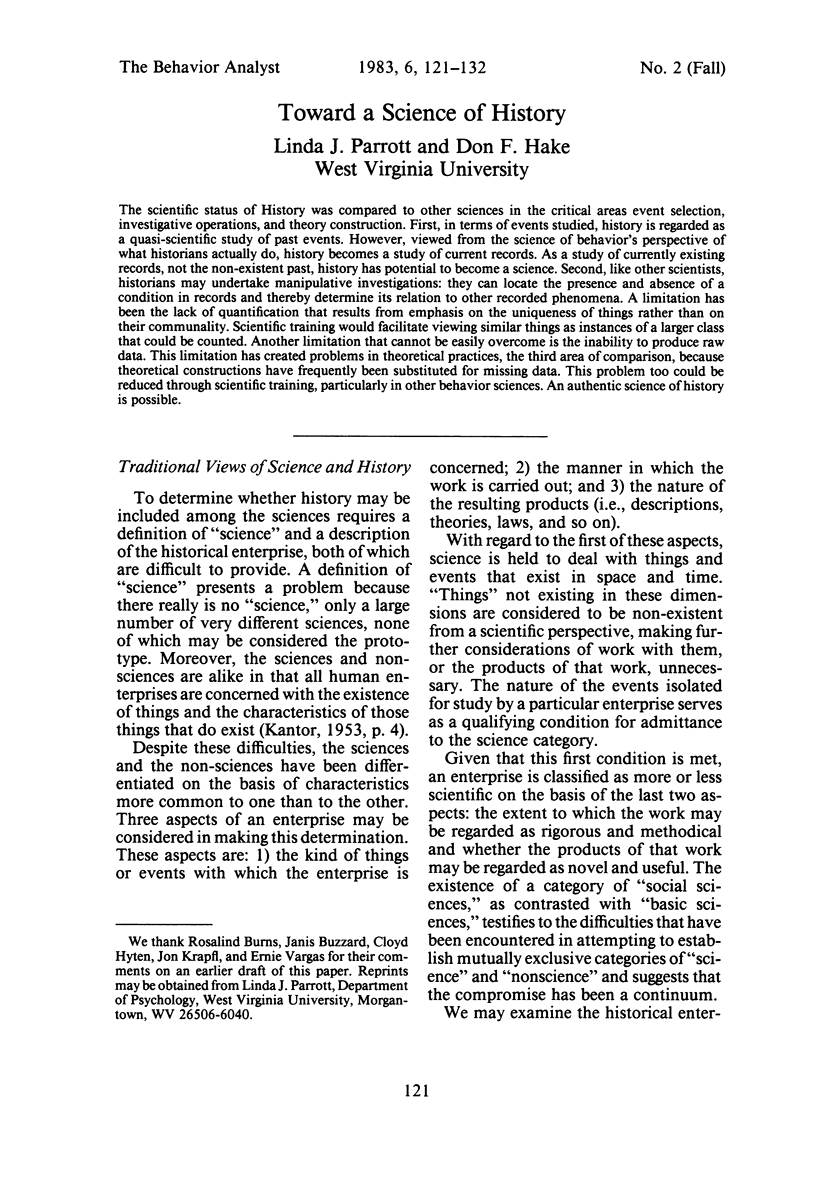
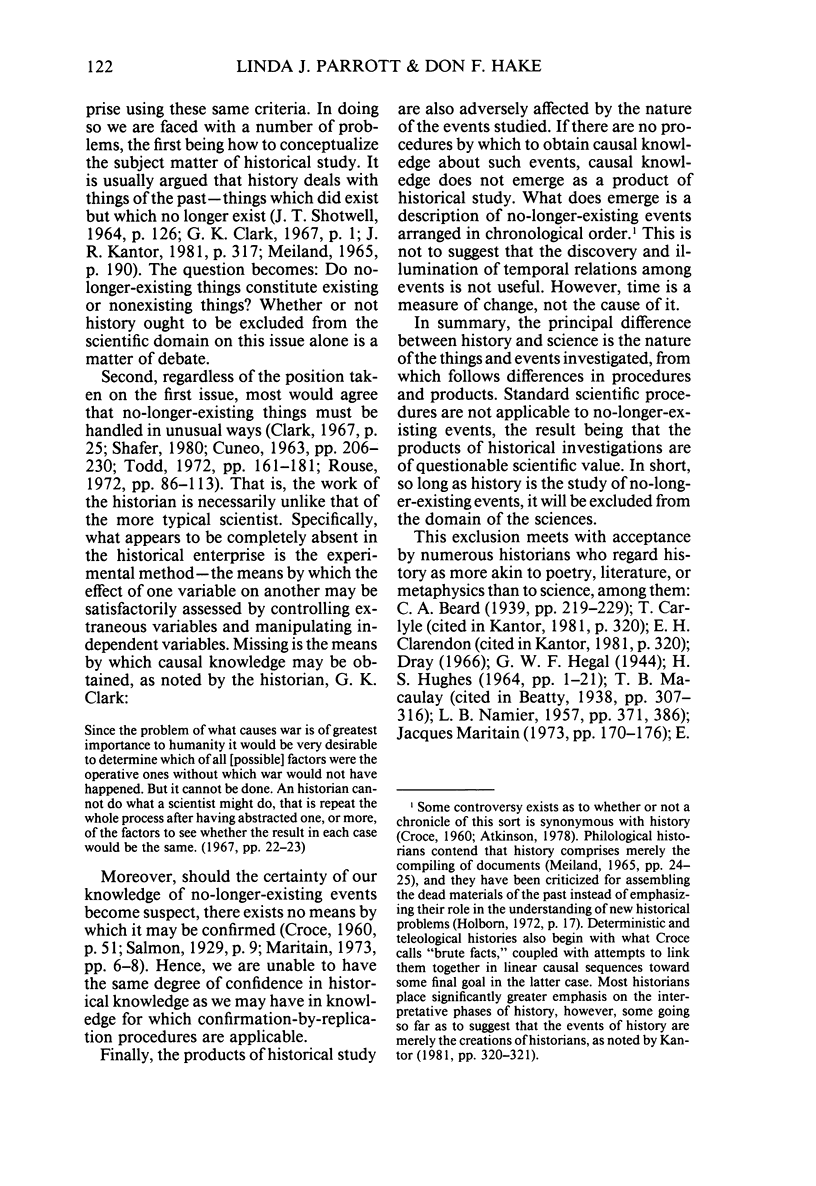
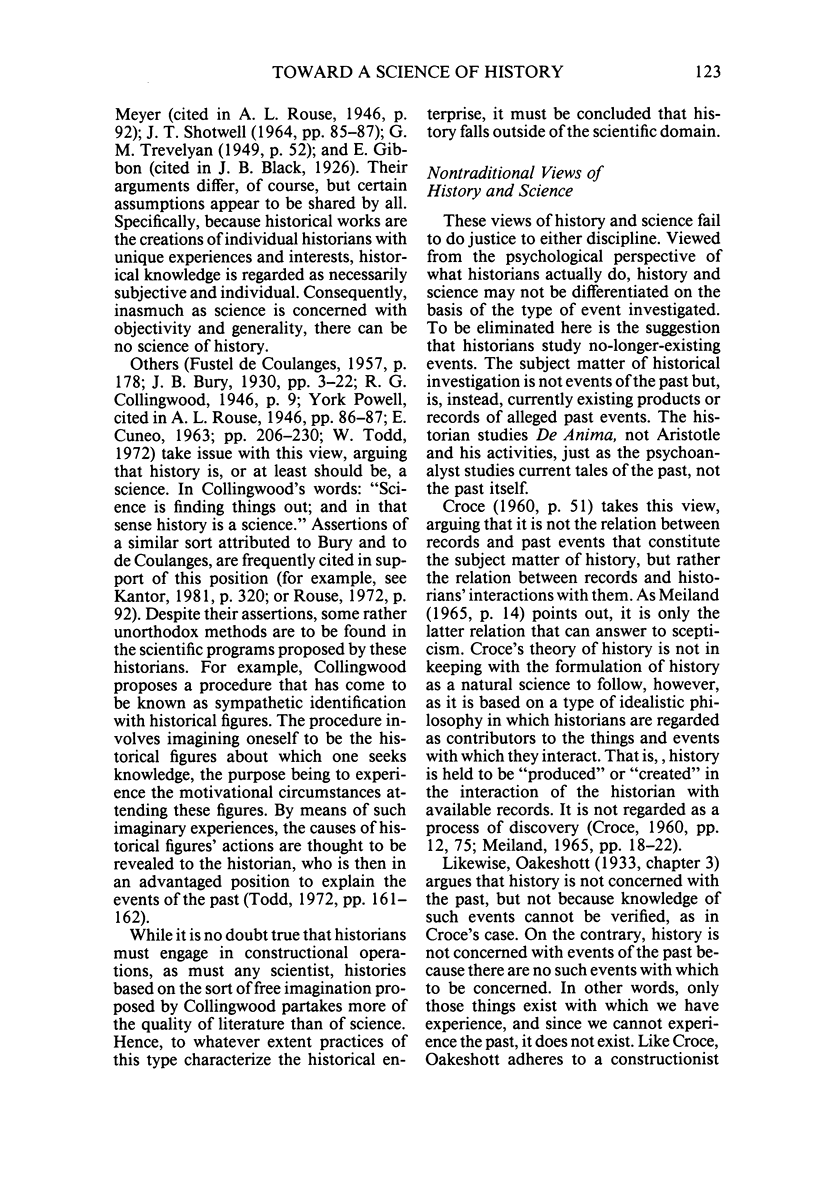
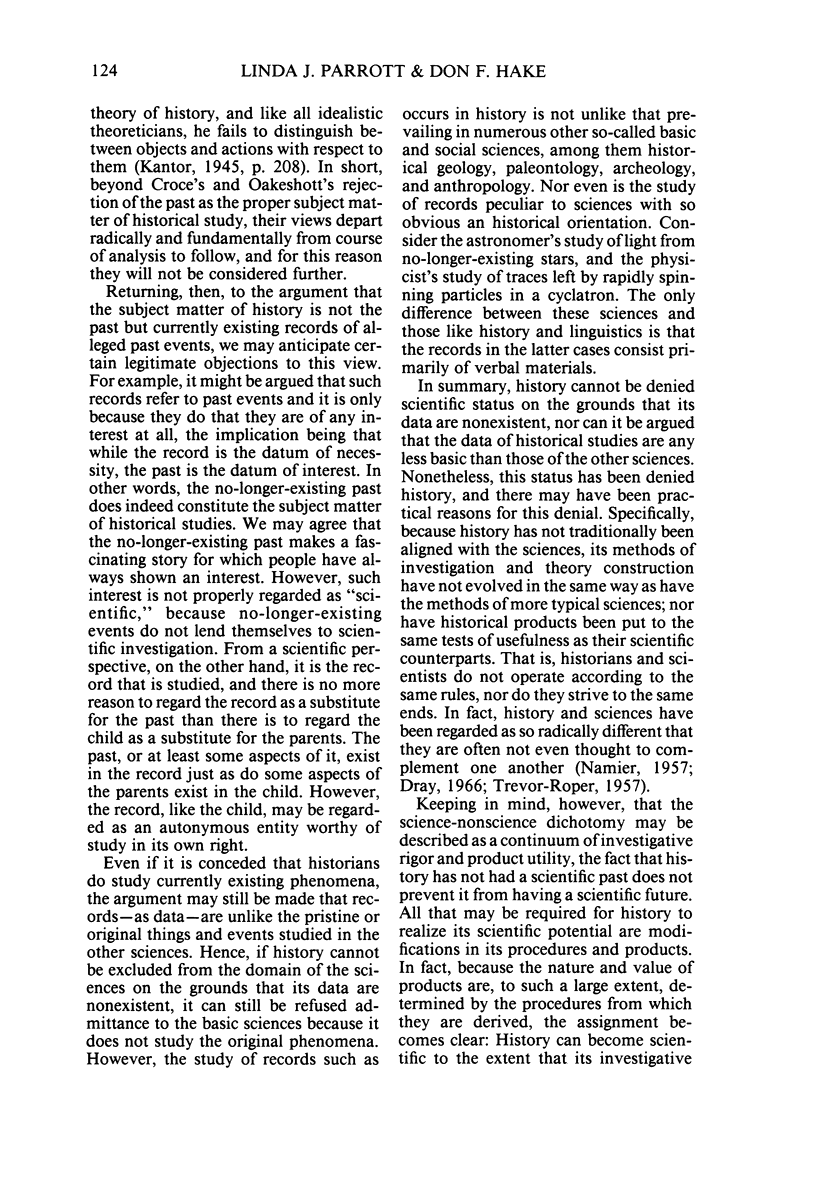
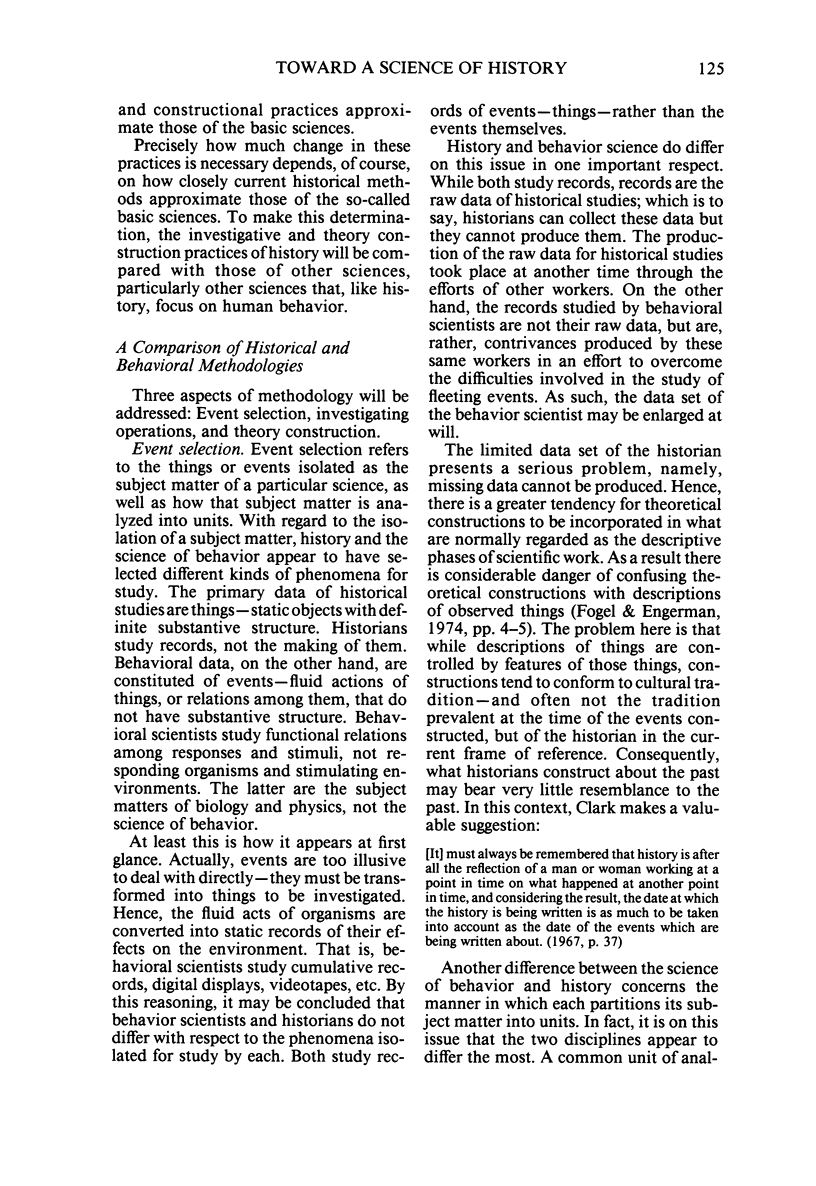
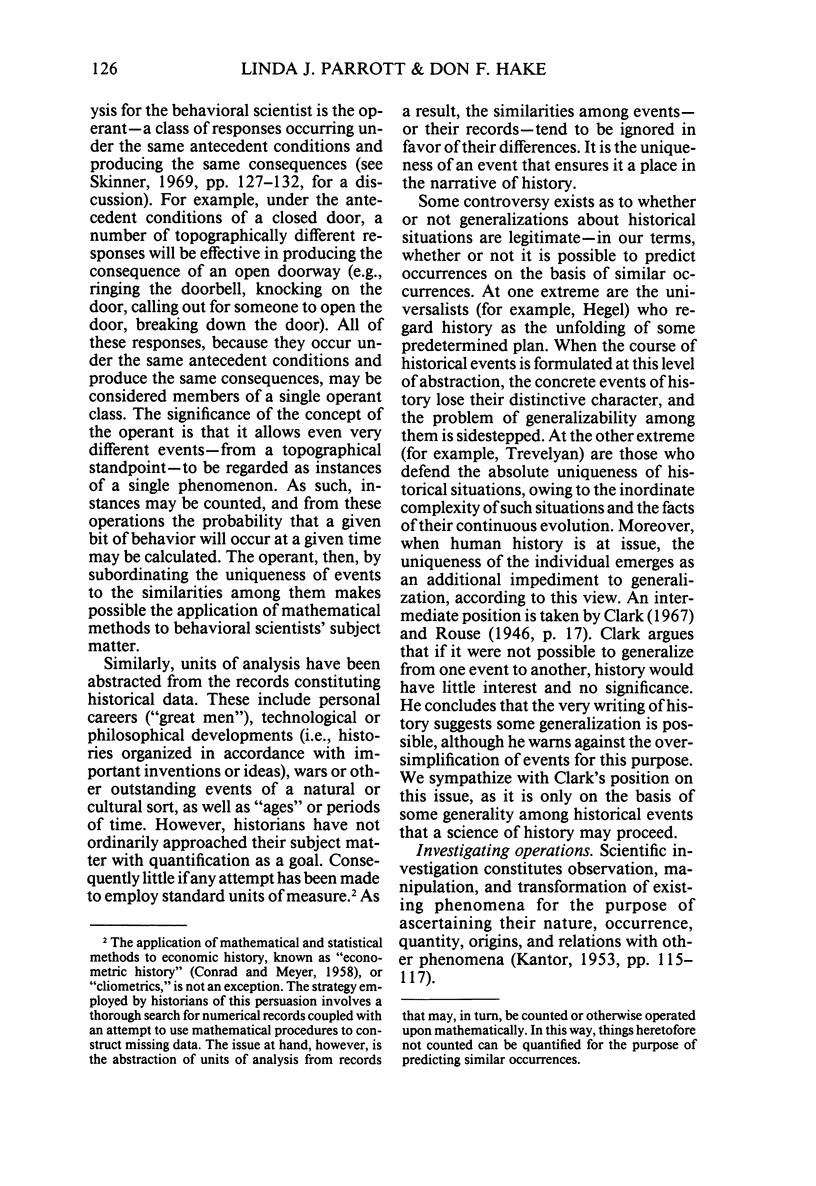
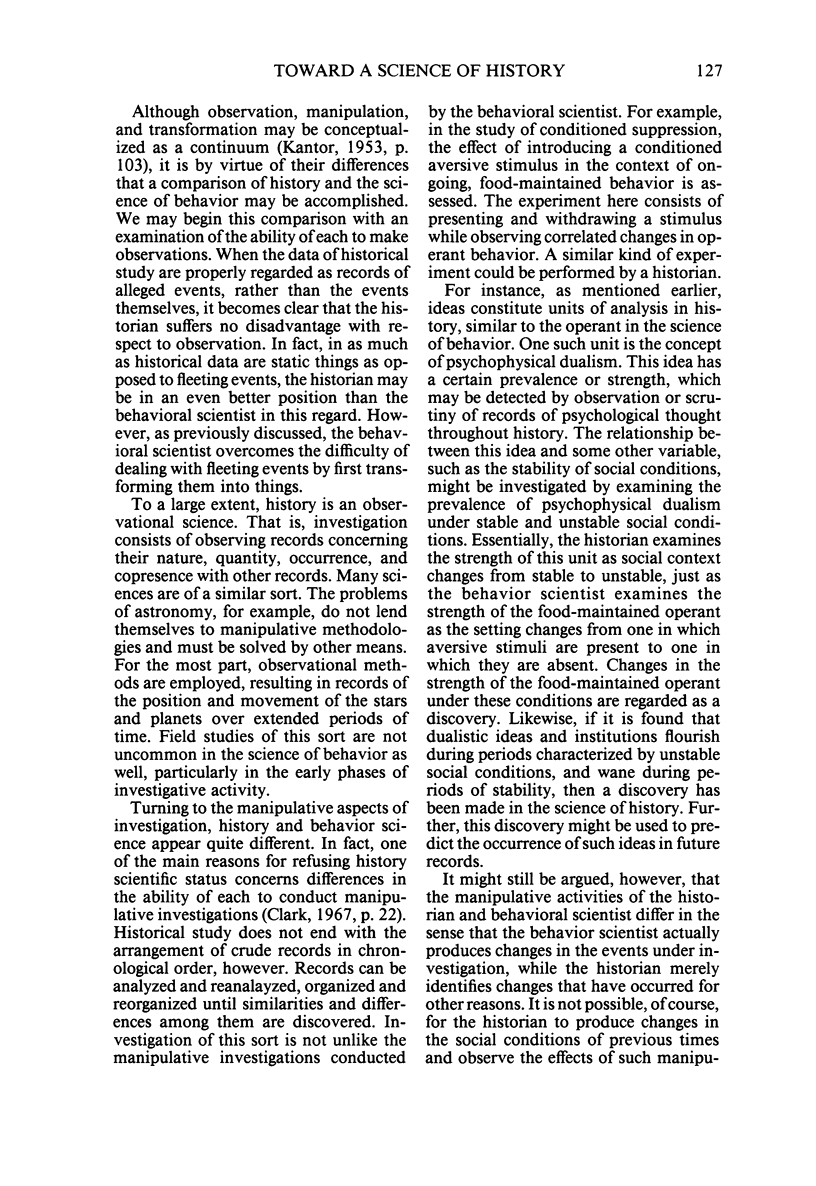
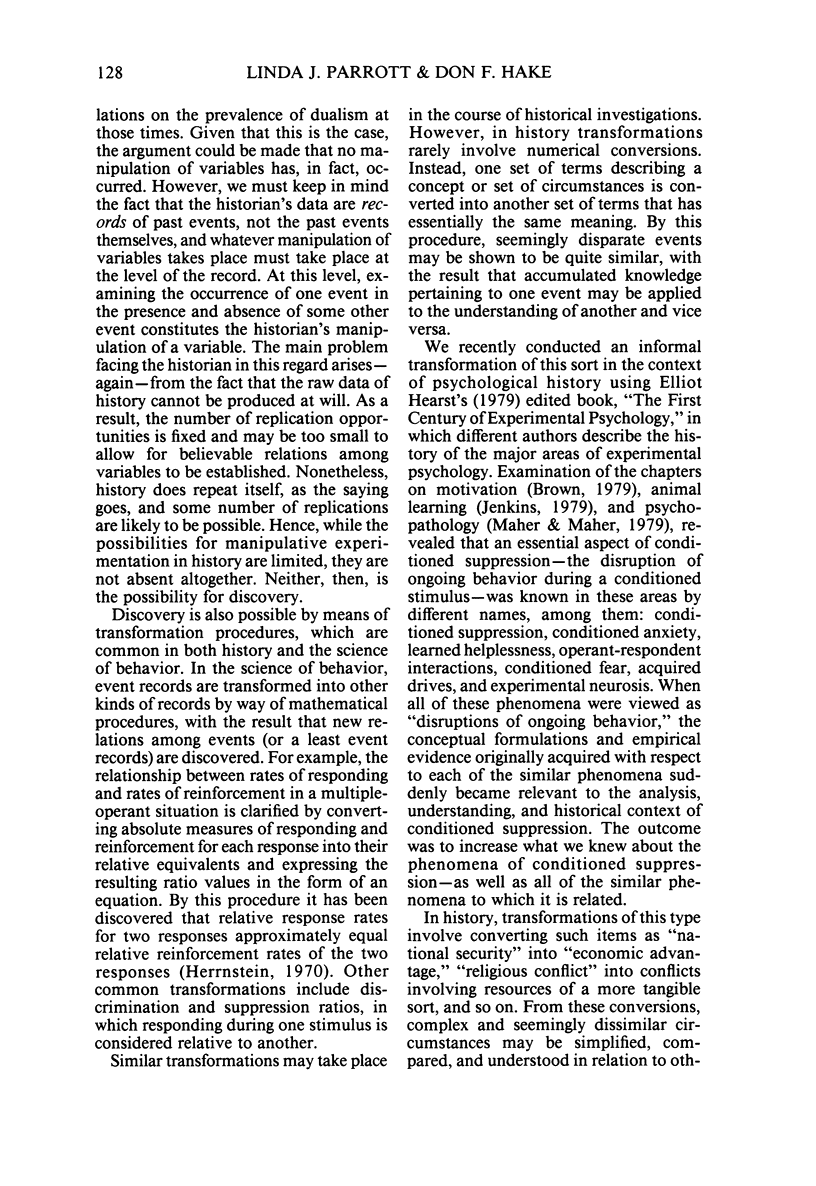
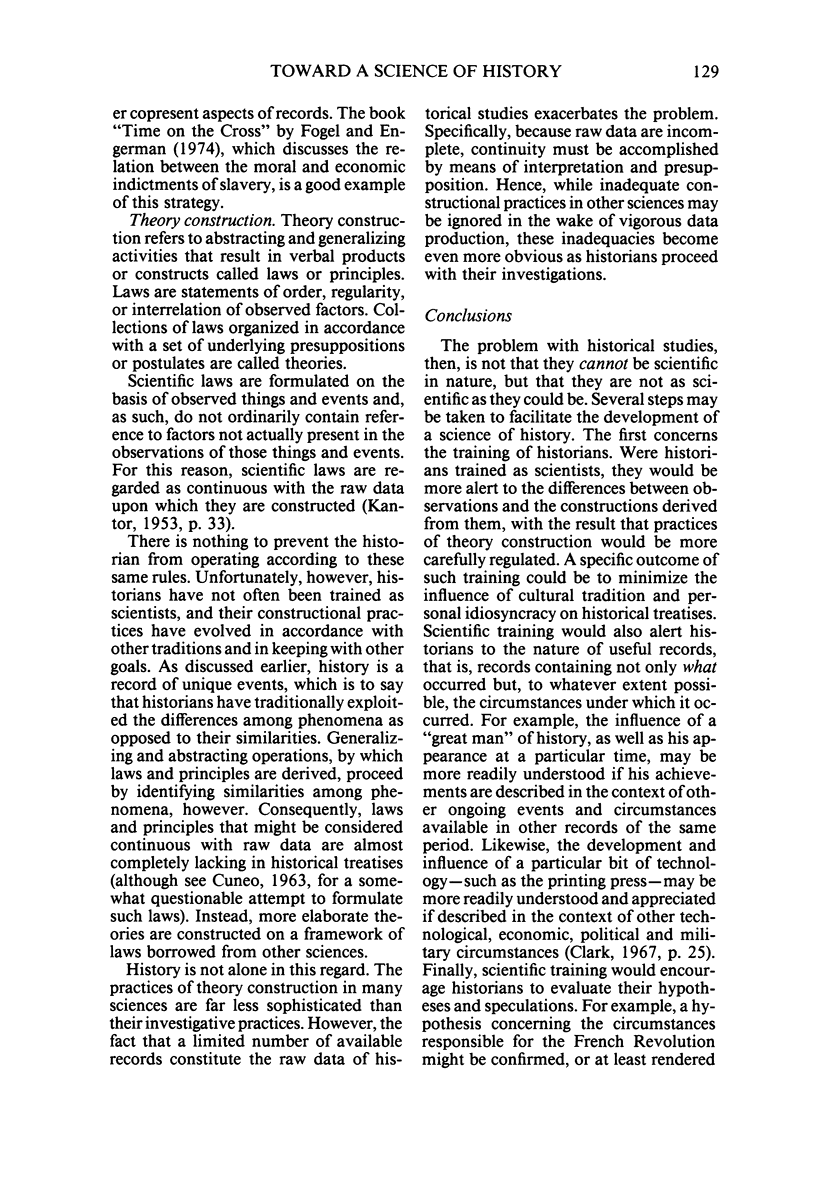
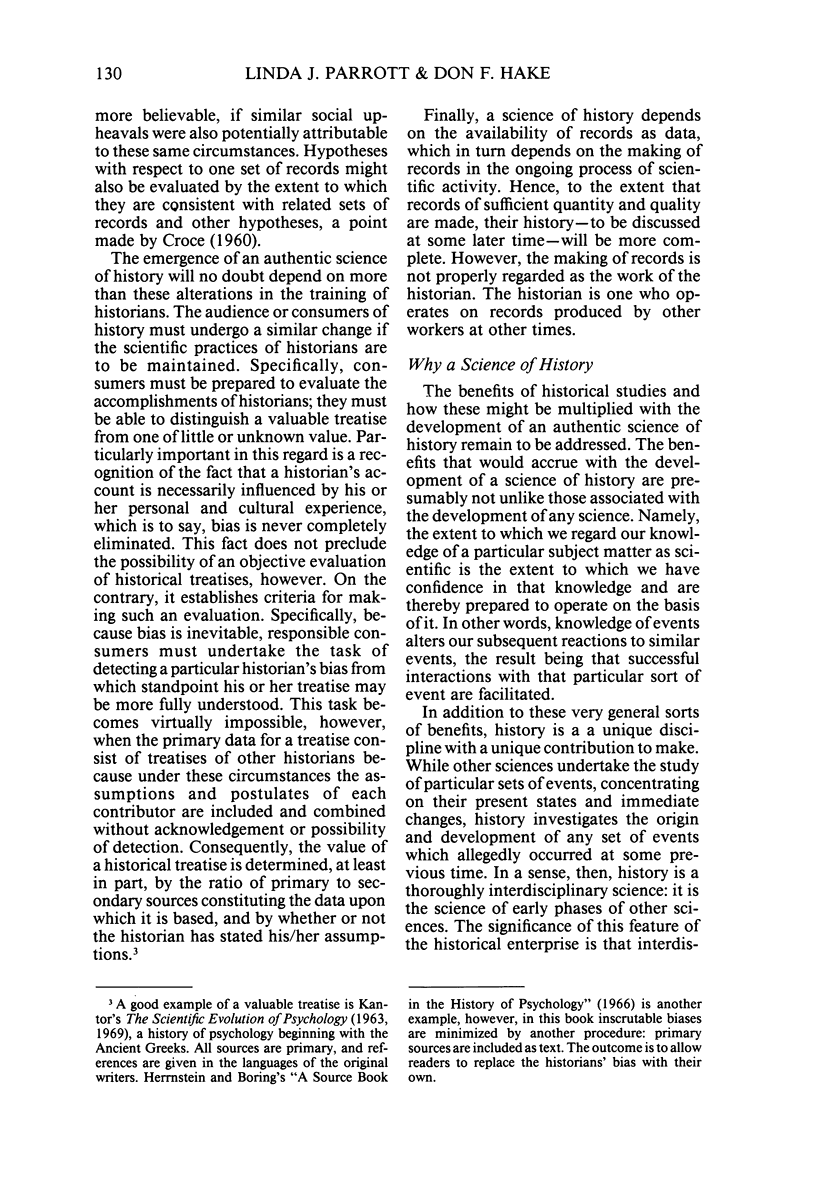
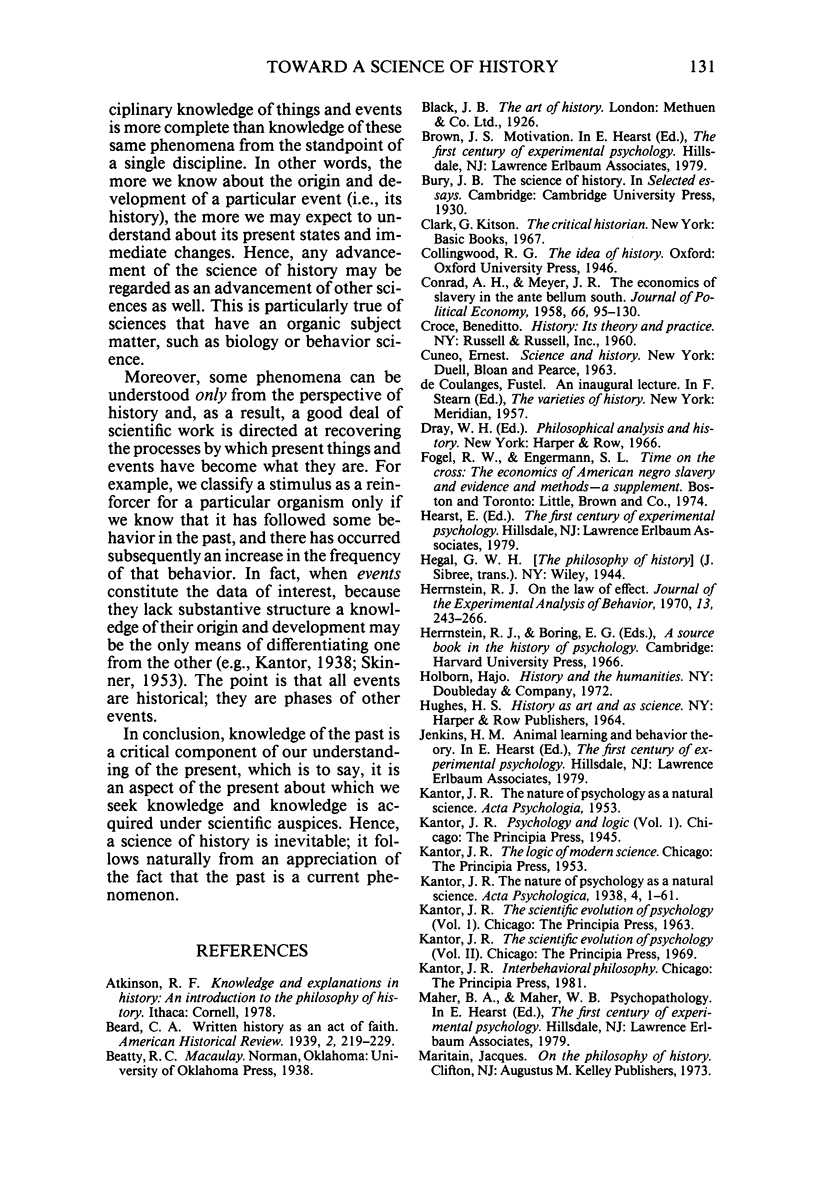
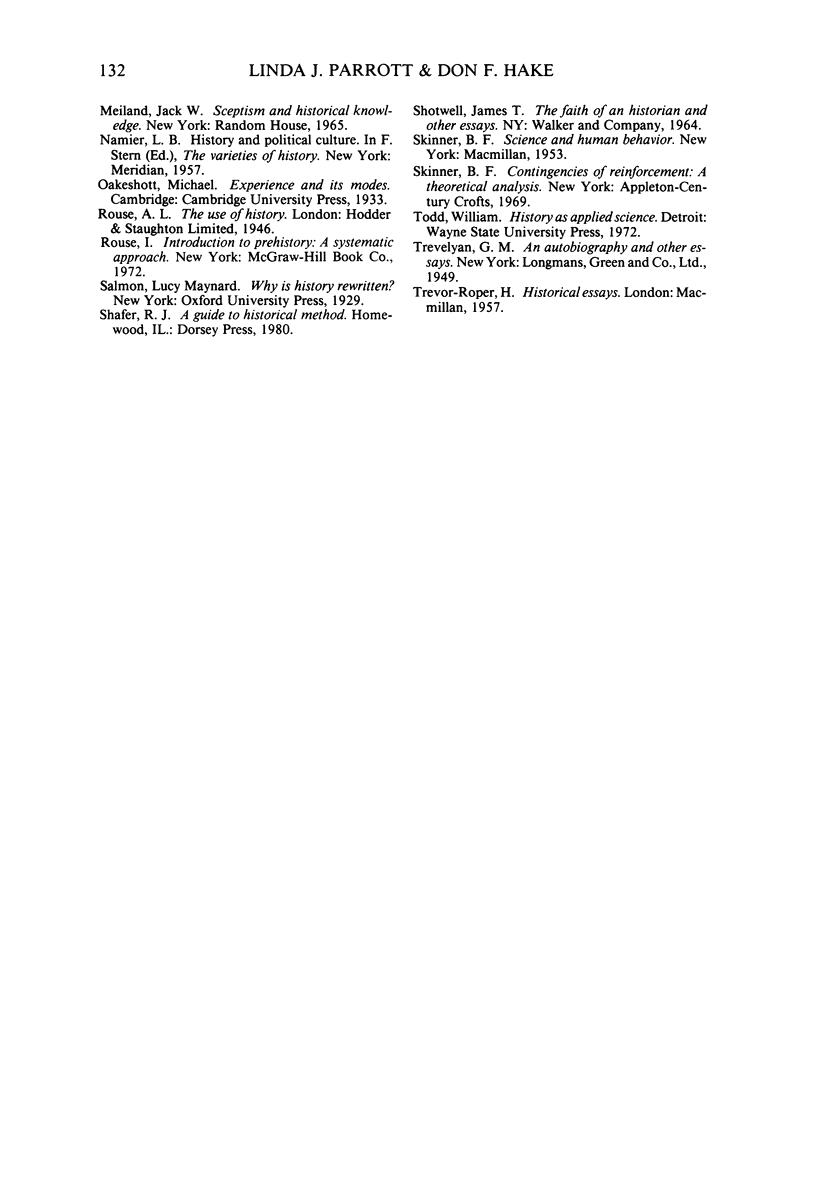
Selected References
These references are in PubMed. This may not be the complete list of references from this article.
- Herrnstein R. J. On the law of effect. J Exp Anal Behav. 1970 Mar;13(2):243–266. doi: 10.1901/jeab.1970.13-243. [DOI] [PMC free article] [PubMed] [Google Scholar]


